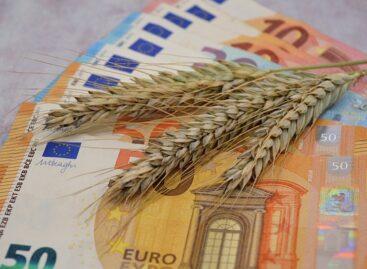Hungary has been a member of the European Union for two decades: what does this mean for the economy?
This year Hungary joined the European Union twenty years ago. On the occasion of the anniversary, from mid-September, the European Commission will “Happy Twentieth, Hungary!” launched a communication campaign with the slogan, the aim of which is to celebrate the achievements of the past two decades. During this period, the Hungarian gross domestic product (GDP) more than doubled, the GDP per capita from 63% to 77% of the EU average, and the employment rate from 62% in 2004 to 80% rose. Among other things, the European Commission presents the positive changes due to EU membership through the individual stories of successful entrepreneurs.
 The mutually beneficial relationship has had quantifiable benefits for our country and other members of the community over the past two decades, especially thanks to the single market. Today, 79 percent of Hungary’s exports go to EU markets, and the value of these exports has increased from 35 billion euros to 117 billion euros in the last two decades. Thanks to the EU’s international trade agreements, trade to markets outside the EU has almost quadrupled. The Hungarian gross domestic product (GDP) more than doubled, the GDP per capita rose from 63% to 77% of the EU average, and in the automotive industry and the electronics sector, our country emerged as a significant player globally.
The mutually beneficial relationship has had quantifiable benefits for our country and other members of the community over the past two decades, especially thanks to the single market. Today, 79 percent of Hungary’s exports go to EU markets, and the value of these exports has increased from 35 billion euros to 117 billion euros in the last two decades. Thanks to the EU’s international trade agreements, trade to markets outside the EU has almost quadrupled. The Hungarian gross domestic product (GDP) more than doubled, the GDP per capita rose from 63% to 77% of the EU average, and in the automotive industry and the electronics sector, our country emerged as a significant player globally.
This was helped by the fact that, with the use of EU funds, the length of Hungarian highways was tripled, and the country’s railway infrastructure became more modern, which strengthened Hungary’s key role in logistics in Central Europe. Between 2014 and 2020, for example, more than 670 kilometers of routes were built or renovated with European Union subsidies.
Related news
Annual inflation in the OECD slowed to 3.7 percent in December last year
🎧 Hallgasd a cikket: Lejátszás Szünet Folytatás Leállítás Nyelv: Auto…
Read more >Related news
Discover the solutions of the future on Startup Island! (Part 1)
🎧 Hallgasd a cikket: Lejátszás Szünet Folytatás Leállítás Nyelv: Auto…
Read more >Annual inflation in the OECD slowed to 3.7 percent in December last year
🎧 Hallgasd a cikket: Lejátszás Szünet Folytatás Leállítás Nyelv: Auto…
Read more >







